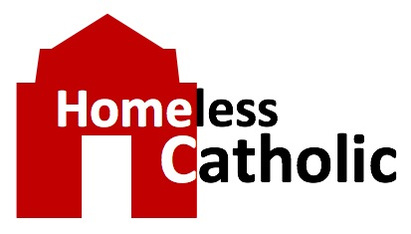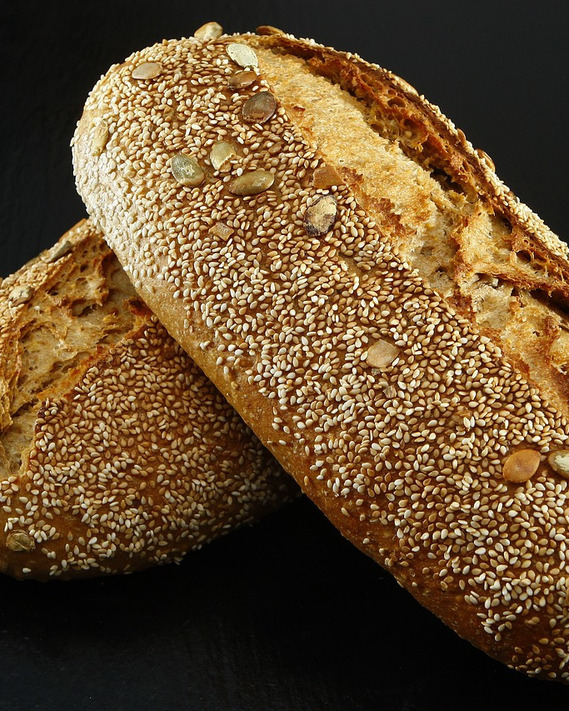God helps who?
"On this mountain the LORD of hosts will make for all peoples a feast of fat things, a feast of choice wines --- of fat things full of marrow, of choice wines well refined. He will swallow up death for ever, and the Lord GOD will wipe away tears from all faces, and the reproach of his people he will take away from all the earth, for the LORD has spoken." (Isaiah 25:6, 8)
Jesus wanted the people to see the sign of the Kingdom in the banquet he provided. But the crowd fell back on their mistaken philosophy: "God helps those who help themselves." They would help themselves by placing on the throne a man who could supply them with bread.
Reflection - Bread
http://www.usccb.org/bible/readings/071217.cfm
Genesis 41:55-57, 42:5-1-7, 17-24
Matthew 10:1-7
There is a story in Greek mythology in which a wagon falls into a ravine. We're not talking your childhood Radio Flyer here, but a hefty freight wagon. The driver is distraught seeing how difficult it will be --- assuming that is even possible --- to get the wagon back on the road. When the driver appeals to Hercules for help, he is told to get busy and figure it out for himself.
Aesop tells a similar tale. This time it's about a man who finds himself aboard a ship that has struck a reef and is sinking. This man, finding himself in peril, calls on the goddess Athena to save him. Fortunately, she hears him and offers a powerful solution. "Try swimming," she says.
We have our own contemporary version of the principle involved; but it's in the form of a proverb rather than a story. Some attribute it to Ben Franklin, but, most assuredly, it predates him by centuries. This morning's Old Testament reading about Joseph and his brother's was what brought the adage to mind. It goes like this: "God helps those who help themselves."
There is some substance to the saying; but it is one that can easily be interpreted in a way that is contrary to faith. When considered in the context of the famine that is central to the Joseph story, we can understand the small kernel of truth that is expressed.
Egypt and the surrounding areas, including the land of Canaan, were apparently caught up in an extended drought. Only Egypt had stores of excess grain. So Jacob had his sons journey to Pharaoh's kingdom to make a purchase. The Egyptian granaries were full, thanks to the foreknowledge of God, his abundance of mercy, and the divine plan to raise Joseph to a position of power and influence. So, to rephrase the account in the words of the saying: God helps Jacob and his family who did not sit around and twiddle their thumbs but helped themselves by traveling to Egypt where God had provided an abundance of wheat.
There are a number of lessons to be learned from the tałe of Jacob's twelve sons. The one I immediately focused on as I read the account came in the form of a question: To whom do we turn for our bread?
Moses got nervous when the Israelites were crossing the Sinai desert and found themselves without bread. When Jacob found his family living in the region of a famine, he sent his sons to secure grain for bread from the only government in the region that had the foresight to fill its grain bins in times of plenty. The Romans regularly used 'bread and circus' to placate the mobs of that empirical city. When she was told that the peasants had no bread, but before she lost her head to the guillotine, Marie Antoinette is rumored to have said of the French mobs "Let them eat cake!" Jean ValJean of Les Miserable fame, spent sixteen years in prison for stealing a loaf of bread. Throughout history, kingdoms, dynasties, governments and nations have all fallen for failing to provide bread for their people. Jesus provided bread for the multitude that had followed him; but, "Perceiving then that they were about to come and take him by force to make him king, Jesus withdrew again to the hills by himself." (John 6:15)
In times of scarcity people tend to expect someone else to provide the bread needed to live. Famines are, consequently, a major concern for any kind of ruler --- king, dictator or president. We may commonly pray, "Give us this day our daily bread." But in reality, it appears that we only truly turn to God as a last resort. The more common dictum guiding our lives is that troublesome proverb: "God helps those who help themselves." So we set about helping ourselves and trust our concerns in these matters will be resolved without having to ask for help from an unreliable higher power.
When Jesus fed the multitude that long ago day in Galilee, the mindset of the people still wandered in that mythical land where people were busy helping themselves and human rulers bore responsibility for securing food in times of necessity. That was why the Jews sought to make Jesus king --- because he could provide their daily bread. And, in a subsequent scene, Jesus calls them out.
"You seek me, not because you saw signs, but because you ate your fill of the loaves."
(John 6:26)
The banquet of great abundance had long been envisioned as a sign of the coming Kingdom. It was a favorite image of Isaiah.
"On this mountain the LORD of hosts will make for all peoples a feast of fat things, a feast of choice wines --- of fat things full of marrow, of choice wines well refined. He will swallow up death for ever, and the Lord GOD will wipe away tears from all faces, and the reproach of his people he will take away from all the earth, for the LORD has spoken."
(Isaiah 25:6, 8)
Jesus wanted the people to see the sign of the Kingdom in the banquet he provided. But the crowd fell back on their mistaken philosophy: "God helps those who help themselves." They would help themselves by placing on the throne a man who could supply them with bread.
Often the promise of the Lord is assumed to be applicable to the Kingdom we will see after the resurrection and final judgement. So it often is when someone interprets the image of the banquet. But that's not right. Jesus told us different. At the end of today's Gospel, Jesus tells the disciples: "Make this proclamation: 'The Kingdom of heaven is at hand.'" It's at hand! Ready to be grasped! Within your reach! What good is bread in heaven or even in the New Heaven and New Earth. No food will be necessary there. Even the Eucharist itself will be gone. Bread is for the 'Now,' not the hereafter; it is for the mortal, not the immortal; it is for the temporal, not the eternal. And the banquet which the Lord promised through Isaiah is a table set for celebration today. The Lord will provide all that we need when we live in his Kingdom. For those who do so the proverb should be rephrased: God helps those whose lives give him glory. It is only in that context that Jesus can admonish us:
"Do not be anxious, saying, 'What shall we eat?' or 'What shall we drink?' or 'What shall we wear?' The Gentiles seek all these things; and your heavenly Father knows that you need them. But seek first his kingdom and his righteousness, and all these things shall be yours as well."
(Matthew 6:31-33)
So, to whom do we turn for our bread?
Who do we turn to in anything and everything?
My tendency towards independence and self-sufficiency regularly leads me astray and I am misled into thinking I should help myself first and then, if I get stuck, or in trouble, or find my limitations too severe --- then and only then should I call upon God. What an upside down image of the way thinks are supposed to be!
Seek first his kingdom and his righteousness, and bread --- no, a banquet shall be yours as well.

